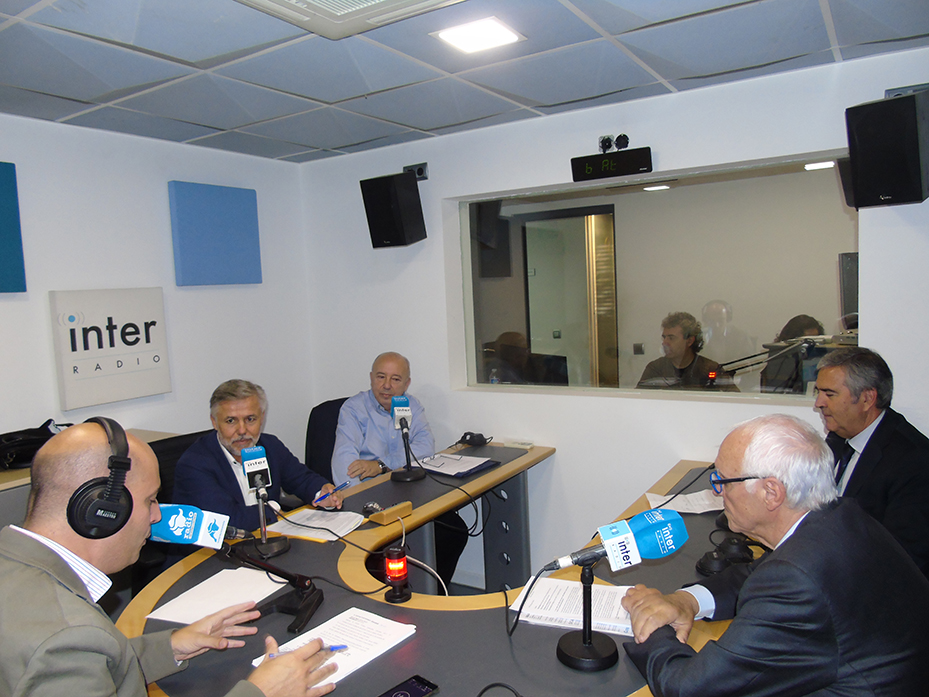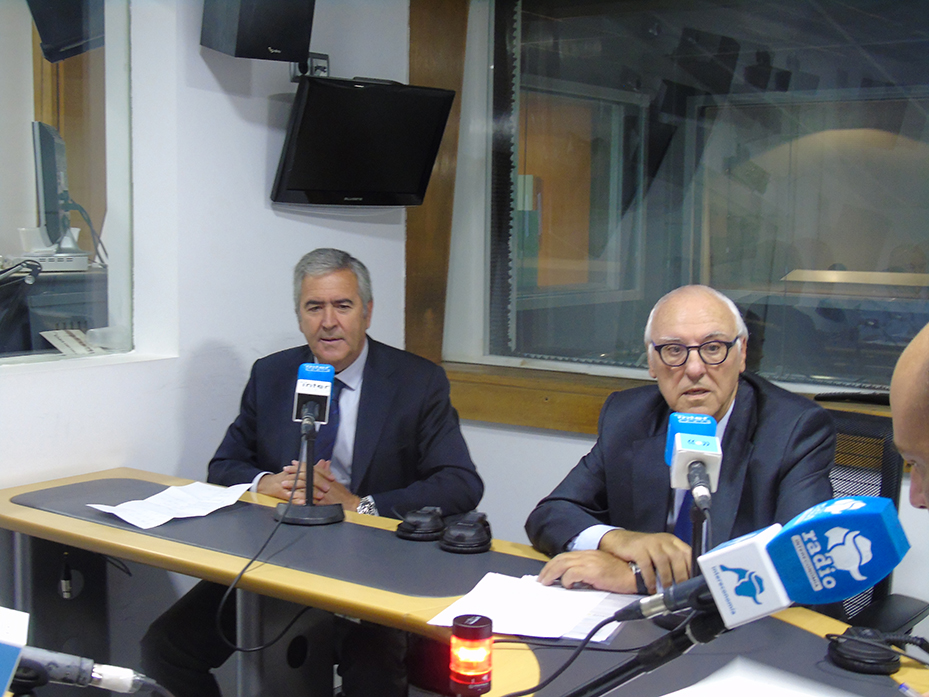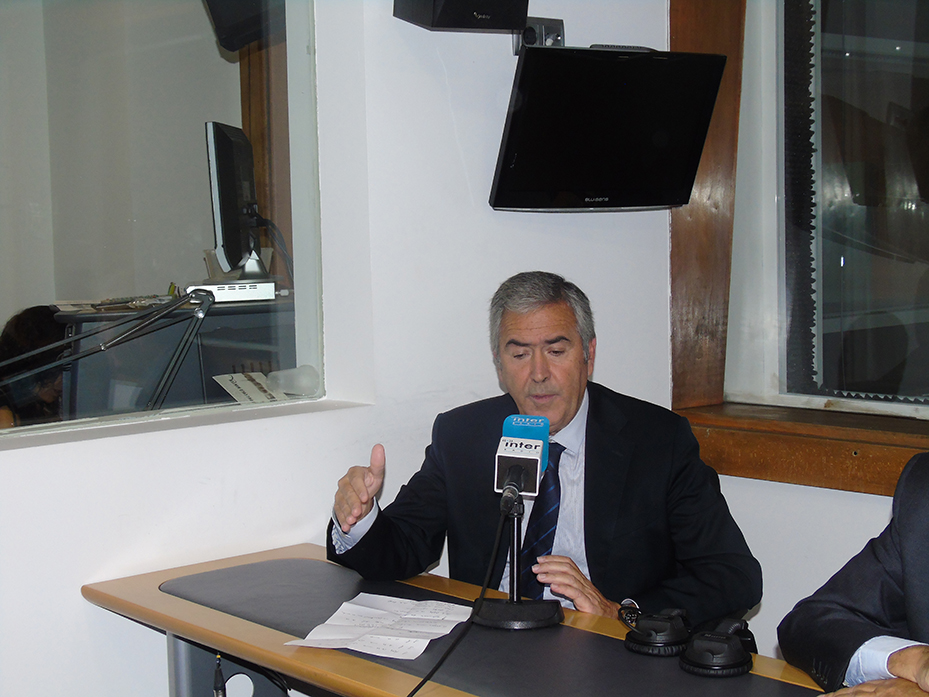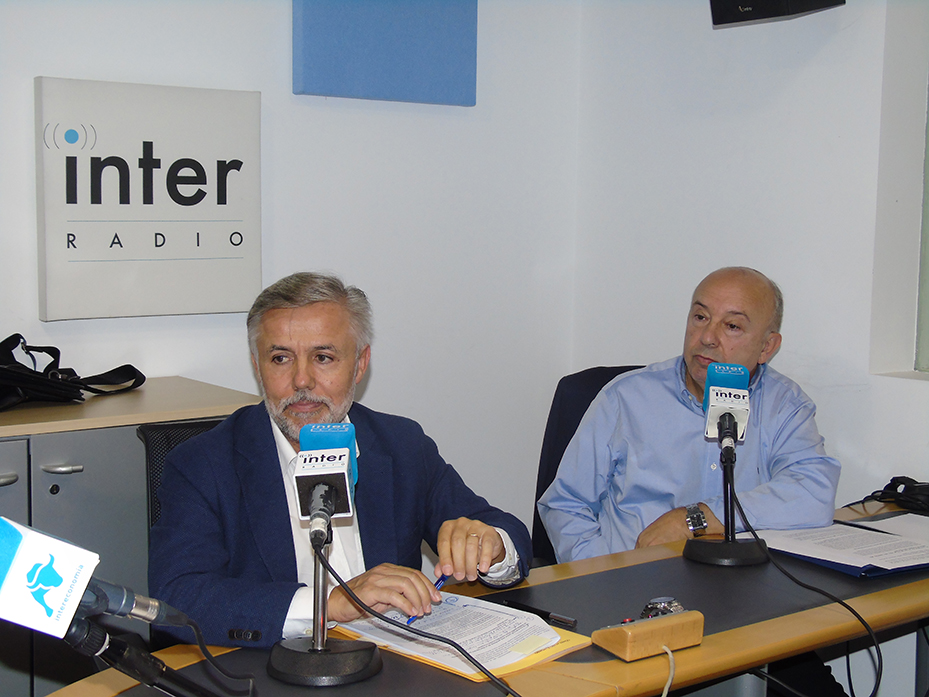49 cabecera noticia_tertulia_patrocinada_Ecogestiona_SIGAUS
SIGAUS, a special guest on the “Ecogestiona” program by Radio Intereconomía, gives an overview of its ten years of activity
The “Ecogestiona” program on Radio Intereconomía welcomed several representatives from SIGAUS and from the sector of used industrial oil management on October 6th to take part in a special debate on the recovery of this waste and the environmental benefits associated to the same. A debate that also served to give an overview of the ten years that the company celebrated in 2017 and the achievements reached.
10-10-2017
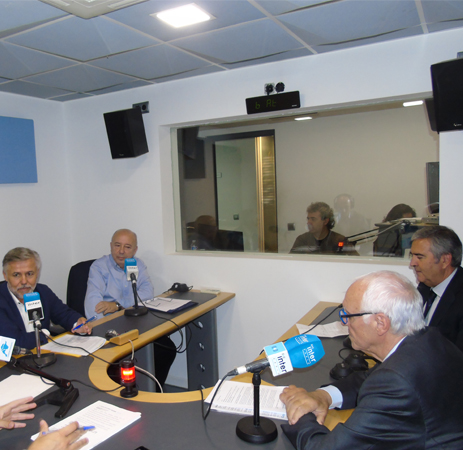
24 párrafo noticia tertulia Ecogestiona_SIGAUS
On October 6th, Radio Intereconomía received SIGAUS as a special guest for the debate on economy and environment that is broadcast every Friday on the show “Ecogestiona”, presented by the journalist Javier Martínez Molina, who moderated a debate table with the presence of Buenaventura González, Chair of SIGAUS, Manel Ribasés, CEO of CATOR, one of the waste management companies, Pedro Poveda, Partner of the legal firm Gómez-Acebo & Pombo and the Director of Institutional Relationships and Communication of SIGAUS, Fermín Martínez de Hurtado.
During the debate, the listeners could learn more about the risks associated to this hazardous waste, used industrial oil, the wide variety of sectors that it is generated in and the great geographic dispersion that the management companies must address in order to develop their work of collection and recovery.
Despite this, the chair of SIGAUS also mentioned the benefits associated to the savings, both in raw materials and toxic emissions, which are possible thanks to the correct treatment of the used industrial oil and its regeneration. The over 88,000 tonnes of used oil treated in this way permitted almost 59,000 tonnes of base oils to be returned to the market, which can be used to create new lubricants, while also avoiding the emission of over 265,000 tonnes of CO2 into the atmosphere which would have been emitted if said used oils had been obtained and used as industrial fuel.
32 párrafo cita noticia tertulia patrocinada_Ecogestiona_SIGAUS
“
Buenaventura González referred to the achievements reached by SIGAUS over its ten years of activity, such as the SIGAUS Forests, actions beyond the task of structuring the waste management system, and of which they feel most proud. With six forests and 6,000 trees planted, the Entity’s intention is to continue down this line.
„
In this line, the CEO of CATOR agreed that regeneration is the most beneficial treatment for used oil from an environmental perspective, which CATOR has been focusing on since 1993. “The products originating from regenerated bases do not only contribute towards halting the greenhouse effect, but also save material resources, maintaining the same quality as the bases created with first oil refining”, recalled Ribasés during the program.
For his part, Buenaventura González summarised the achievements reached by SIGAUS over its ten year history, explaining some of the actions that the Entity has launched during this time beyond the management work, such as the environmental awareness and distribution campaigns, among which we can highlight the “SIGAUS Forests”. He mentioned that in 2017 the sixth of these forests was already a reality, in the Madrid town of Collado Villalba, adding to the 6,000 trees planted through an initiative that will continue to be promoted in future campaigns.
After Pedro Poveda’s discussion regarding the ecological targets established by law the for recovery of used industrial oil and the predictions for the new Royal Decree which is currently being studied for the regulation of waste management, Fermín Martínez de Hurtado explained the important relationship between the work by SIGAUS and the principles of circular economy, taking into account that the used oil, once it becomes waste, can be transformed an infinite number of times into a valid resources to form part of new products. In this line, SIGAUS demonstrated its commitment to these principles by signing, together with another 54 entities and organisation, the Circular Economy Pact promoted by the public administrations in order to promote a new model that combines economic development with the preservation of natural resources.
